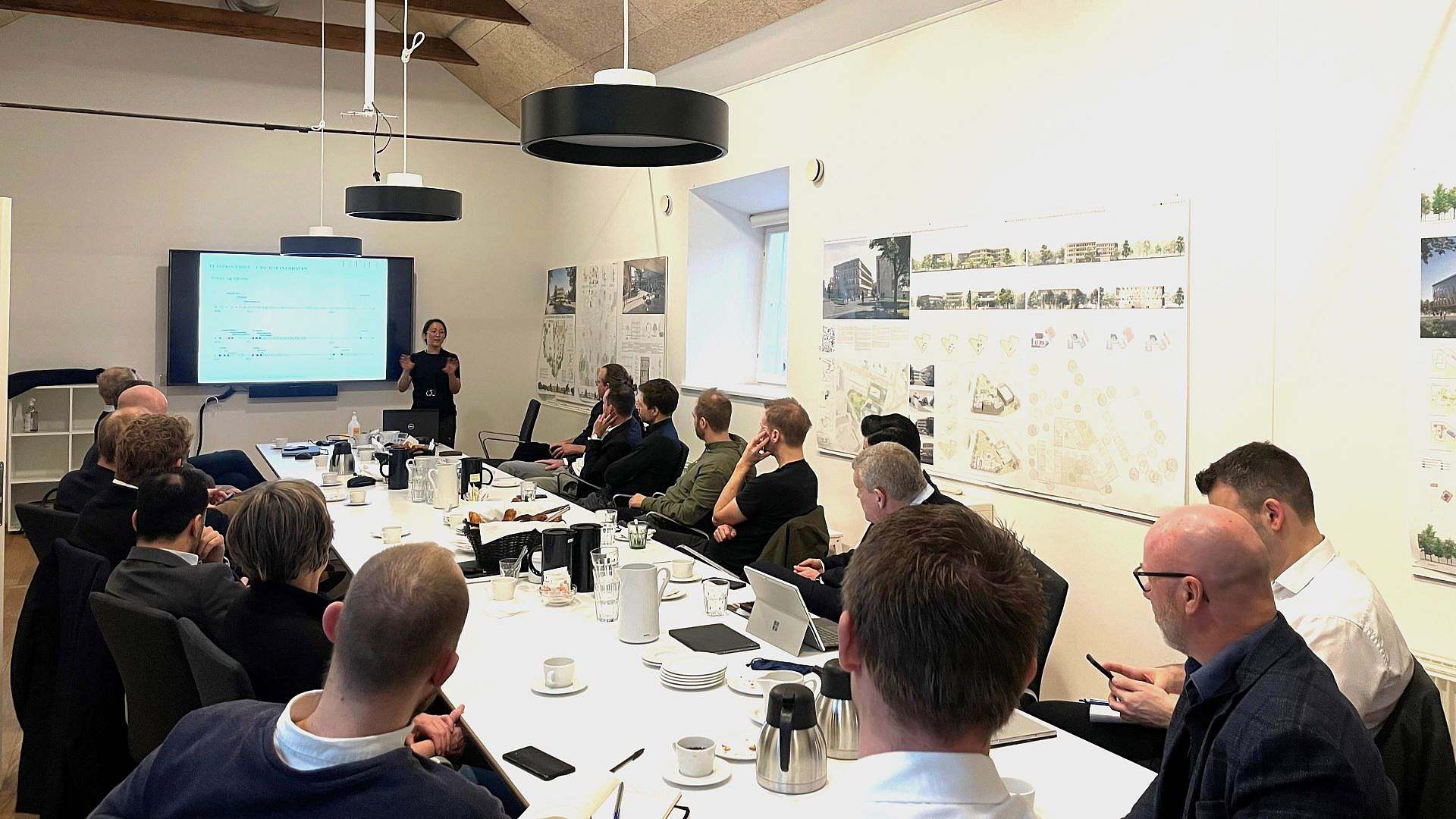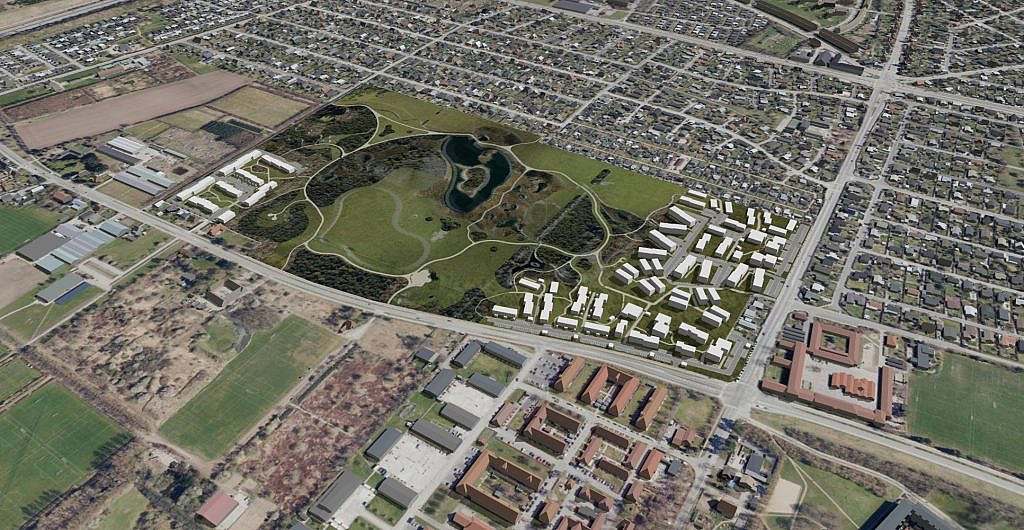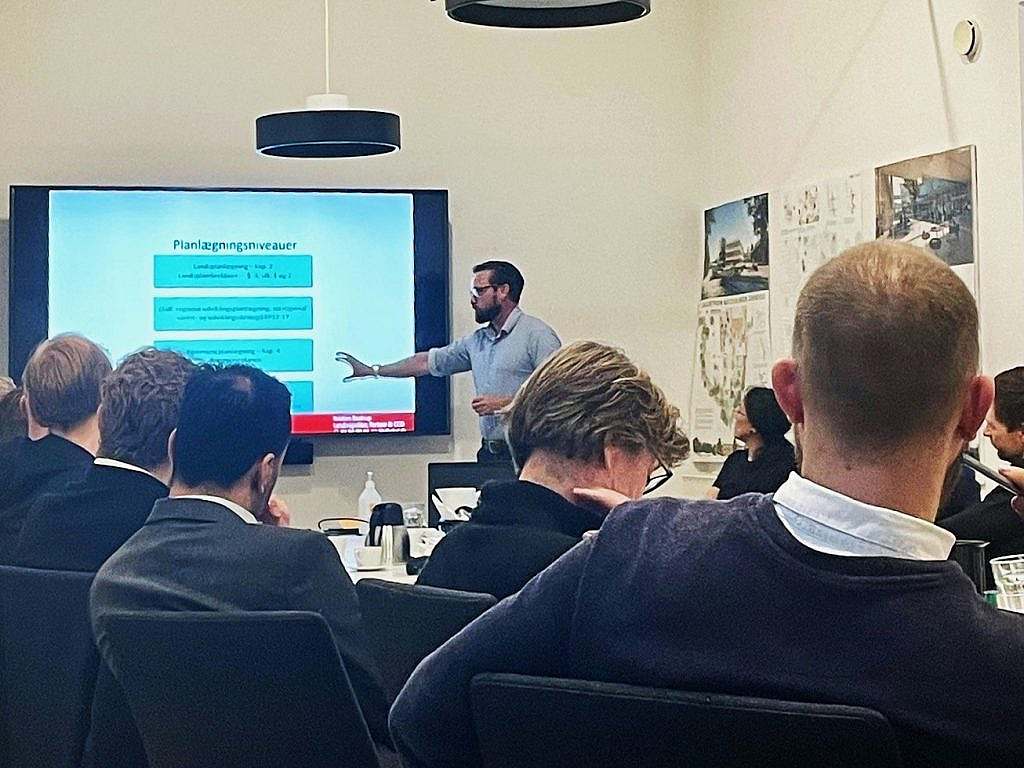On Wednesday morning, KHR Architecture held an interesting morning meeting where urban planning expert Elisabeth Jeppesen and surveyor Kristian Bastrup gave the participants an insight into legislation, urban planning and its processes in connection with property development. The meeting was based on a number of concrete cases and typical pitfalls.


The three legs of the planning process: Project, legislation and policy
Elisabeth Jeppesen, KHR Architecture's urban planning expert, shared her extensive experience of urban planning in over 30 municipalities over 12 years. She emphasised the importance of successful interaction between project, legislation and policy in the planning process. Drawing on her role as project manager for the Gartnerhaven development, she emphasised the complexity of navigating EU directives, the Finger Plan, environmental assessments and the political processes. Project developers are faced with multiple regulatory requirements and major challenges such as climate protection. Interdisciplinary collaboration and timely decisions are therefore crucial for project success.

A deeper dive into the complex legislative process
Surveyor Kristian Baastrup from Skel.dk gave participants a deeper insight into the legislative aspects of the planning process, including framework controls and the different planning levels inherent in the Planning Act. He presented the differences between the National Planning Directive, municipal plan and local plan and discussed the importance of integrating information about purposes and legal effects, such as climate adaptations, already in the planning process. The discussion ranged from exemptions, temporary use of areas, easements and co-operation between project developers and surveyors.

Multidisciplinary work is the key to success
The conclusion of the morning meeting was clear: Successful urban development and urban planning requires good dialogue between all stakeholders, an understanding of the interdisciplinary disciplines and knowledge of the right legislation, as this saves time and resources. Elisabeth and Kristian also emphasised the importance of early involvement of public and private interests, as this can ensure greater support for the project, minimise conflict and gain public acceptance and recognition.
If you are interested in learning more about our urban planning services or need help with a specific project, please contact Elisabeth Jeppesen.